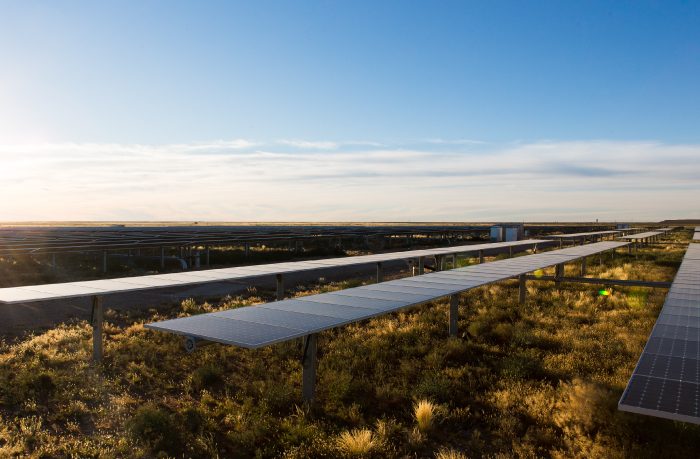- Reported module underperformance at the 75 MW Mulilo Sonnedix Prieska solar project in South Africa has drawn a response from one of the module suppliers.
- The project is said to be experiencing serious problems due to premature module degradation.
- In responding to the alleged module degradation, Divian Govendar, the CEO of Johannesburg-based solar module manufacturer ARTsolar, notes that the company has not be required to replace modules to the project.
This is an ongoing story co published by Green Building Africa and pv magazine.
Claims of widespread backsheet failure at the Mulilo Sonnedix Prieska project emerged in the later stages of 2019. Parties involved in the project have been reticent to provide details as to what precisely has occurred. However, it is understood that some module replacement will be required. The modules used in the project were supplied by Chinese manufacturer BYD and South African producer ARTsolar.
Not one panel replaced
“To date – we have never replaced a single panel, be it for the REIPPP or any private project,” said Artsolar’s Govendar. “We run an AI system that is able to track every single serial number and the related process of every single panel that ever left our factory. It is this process that brought the importing of panels by BYD, to all parties attention”
Backsheet problems
Govendar notes that Artsolar produced 100000 of the 300000 modules used on the project. BYD supplied the remainder – presumably from its Chinese manufacturing facilities. He says that the company has not been informed by either BYD nor the EPC Juwi regarding backsheet problems – however Artsolar is aware of backsheet problems at the project.
“Our plant and process has always been to reject cells and other raw materials based on our own quality criteria,” Govendar continues. “Similarly, we rejected laminates based on the corresponding criteria. We cannot comment on whether these same criteria are followed by foreign manufacturers.”
In addressing whether module failures or faults are more prevalent in South African PV projects, the Artsolar CEO says that the country can be the target of low-quality “dumped” products. He additionally pointed to the practice of developing PV power plants with the aim to “flip” them after a handful of years after completion as being problematic – a strategy that has proven problematic outside of South Africa also.
“This is something that we have been speaking about for years,” comments Govendar, on the process of developing projects for quick sale. “The developers often sell the projects in its entirety to investors once the project is “stable” for three to four years. But it is only around that point – where issues become prevalent.
“It is a widely known fact, that the module price in South Africa is amongst the cheapest in the world – after all, there has to be a final destination for other grade modules, right?”
Further, Govendar argues that the South African module maker’s participation in the project has, in fact, prevented more widespread failures. “We can trace every single panel using its serial number that is contained in more than one location. If panels were ever replaced – it was never done by us. He adds that “many issues” cannot be discussed further as they are confidential.
Quality assurance
“We are a TUV and SABS certified facility and hold ISO 14001 Environment certifications,” Govendar says, setting out the company’s quality credentials. “I can confirm that all materials were TUV certified and compiled with the production standards as approved by BYD.”
Factory audits were also a part of the module supply process for Mulilo Sonnedix Prieska. Artsolar reports that its facility was independently audited and that independent engineers VDE Renewables and the EPC Juwi conducted a “continuous quality verification process … All of this is the exact reason why we advocate local production, so strongly.”
Authors: Jonathan Gilford and Bryan Groenendaal















